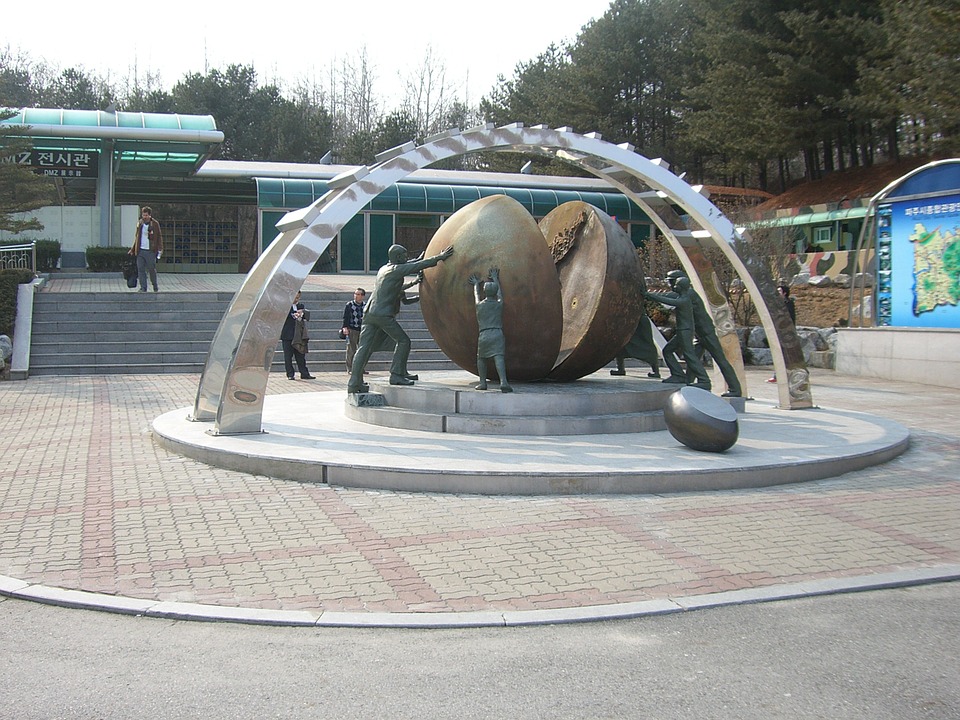According to an unconfirmed claim made by a top representative of the western-backed Syrian opposition, North Koreans are fighting on behalf of Syria’s president Bashar al-Assad. Speaking to Russian media in late March, Asaad Al-Zoubi, a high-ranking member of Free Syrian Army and opposition representative to the UN’s High Negotiations Committee, commented that there are currently two North Korean units fighting the numerous anti-Assad groups in Syria.
This is not the first time unsubstantiated reports have surfaced which associate North Korea with the current Syrian conflict. In 2013 it was reported by a Saudi newspaper, and later by a South Korean news outlet, that a member of the Syrian Observatory for Human Rights claimed that Arabic speaking North Korean military officers were in Syria assisting the government with logistics and military planning. Furthermore in 2013, it was reported that North Korea had sent helicopter pilots to support government forces. However, just as with Al-Zoubi’s claims, these reports have not been validated by a credible western military source. Nonetheless, in 2013 North Korea was implicated in seized Syrian bound shipments of gas-masks and suits which could be worn for protection during a chemical weapons attack.
University of Maryland researcher, Philip Smith, notes that the reported sightings of North Koreans in Syria may simply be a case of mistaken identity. He believes that those described to be Koreans fighting alongside the regime could be foreign fighters with features that resemble those of the Koreans, such as members of Afghanistan’s minority Hazara population.
While the rumoured North Korean contingents are small, the implications of North Koreans fighting in Syria are not. With the threat of conflict escalating in the Korean peninsula, the real-world combat experience North Korea can gain in Syria may be valuable should its current aggressions result in a hot war. Further, as sanctions loom over the North Korean economy, a possible arrangement between Syria and North Korea may provide valuable cash to Kim Jong-Un’s regime.
North Korea has a history of assisting Syria in the building of its military capabilities and providing fighters and arms during times of conflict. For instance, in the 1960s and 1970s North Korea helped the Syrians upgrade their T-54 and T-55 tanks and dispatched pilots to Syria to offer training and fly combat missions against Israel. In the 1980s, North Korea sent a contingent of special forces instructors to Syria in order to train the Syrian army and their allies in insurgency tactics.
While Russia and Iran receive much of the credit, North Korea has also been integral in building Syria’s missile capabilities and infrastructure. According to a 2016 report prepared by the Congressional Research Service, “Syria has received ballistic missiles and related technology from North Korea.” Further, during a Senate Armed Services Committee hearing in 2013, then-Defense Intelligence Agency director, Michael Flynn, testified, “Syria’s liquid-propellant missile program depends on essential foreign equipment and assistance, primarily from North Korean entities.” In 1992, Syria, with North Korean support, constructed two missile complexes at Aleppo and Hama, which included assembly plants and launching systems. Over the years Syria has acquired Scud B, Scud C, and Scud D tactical ballistic missiles as well as launchers from North Korea, and with Iranian and North Korean assistance and components, Syria gained the capacity to upgrade, repair, and produce Scud missiles indigenously. An example of the movement of these components from North Korea to Syria occurred in 2012 when North Korean produced graphite cylinders, conceivably for use in missile production, were seized from a Chinese freighter enroute to Syria. While most countries that have procured North Korean missile technology in the past have curtailed their purchasing in recent years due to international pressures, Syria appears to remain an important friend and client, according to official American accounts.
North Korea has been instrumental in assisting Syria with its limited yet potentially destabilizing nuclear ambitions. Although the aforementioned Congressional Research Service report notes that, “Syria does not appear to have an active nuclear weapons program,” North Korea was responsible for aiding Syria in the construction of a nuclear reactor in the 2000s. The reactor, which resembled a North Korean model operating in Yongbyon, was outfitted to produce plutonium for weaponization. That reactor was destroyed in 2007 by an Israeli airstrike, which some reports claim took the lives of North Koreans working at the site.
Regardless of whether there are currently members of the Korean People’s Army fighting in Syria, the two despotic nations are steadfast allies at a time when the world has largely renounced the rhetoric and actions of both states. As the states continue to grow further isolated from the greater international community, they have sought to fortify their ties. Since the Syrian Civil War commenced in 2011, they have hosted official delegations from one another’s countries and publicly commented in support of one another numerous times. This loyal bond was epitomized in August 2015 when Syria honoured the first ruler of North Korea, Kim Il-Sung, by inaugurating a street and a 9,000 square metre park built atop recently demolished Damascus homes in his name.
Ultimately, while the claims of North Koreans fighting in Syria are inconclusive, due to the historic military connections the pariah states share, as well as North Korea’s willingness to militarily aid aligned governments, such as that of Iran and those across Africa, the prospect of North Koreans in Syria remains plausible.
Photo: North Korean soldiers look across the DMZ (2008). By Edward N. Johnson, U.S. Army via Wikimedia Commons. Public Domain.
Disclaimer: Any views or opinions expressed in articles are solely those of the authors and do not necessarily represent the views of the NATO Association of Canada.




